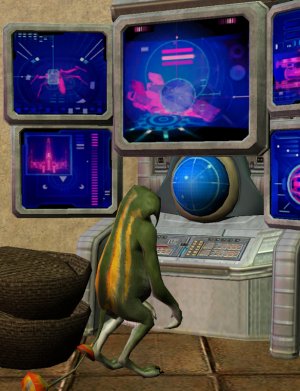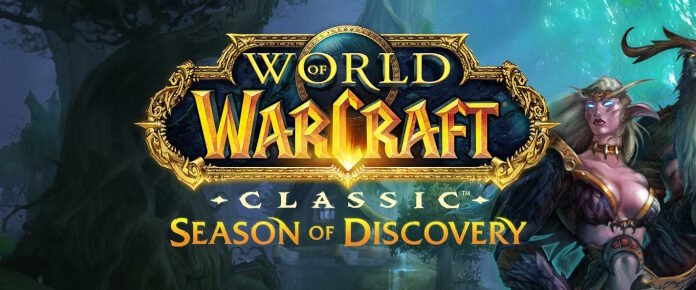
Star Wars Galaxies would have been 12 years old this week, had it lived a day past Star Wars: The Old Republic. That makes this the perfect time to dig up and try to answer an old email from longtime Massively OP reader Hagu the Pally in this week’s Ask Mo.
Why did SWG have so little influence on games and developers? A recent comment was, “There is not a lot of evidence that SWG had significant impact on anything in MMOs. Is it even hyperbole to say Meridian 59 influenced MMOs more than SWG?”
As a crafter, I read so many people who loved the crafting. It’s famous. Yet “all” the subsequent developers and games have not even tried; not pale imitations, they just didn’t seem to go that way at all. Same for entertainers. etc.
One can say WoW does raiding and SWTOR does story better than other MMOs, but the other games do attempt them. If people listed their top SWG features, how many were copied by other games? I can think of the EQ, EQ2, WoW, GW2, RIFT, EVE (PLEX-like is an adjective for reviewers) features that seemed to have influenced other games.
Am I just ignorant of a lot of ways SWG changed the world? Why did such a seminal game that resonated so passionately with some people not have more downstream impact?
In the time since Hagu’s question landed in our inbox many moons ago, Raph Koster, the original lead designer on the game, posted a series of blog articles discussing the game’s design decisions, errors, and triumphs. The series makes for handy background reading:
 Koster’s final post-mortem: Did Star Wars Galaxies fail?
Koster’s final post-mortem: Did Star Wars Galaxies fail?
 Koster on Star Wars Galaxies’ combat and social connectivity ‘glue’
Koster on Star Wars Galaxies’ combat and social connectivity ‘glue’
 How Star Wars Galaxies pioneered a ‘living society’
How Star Wars Galaxies pioneered a ‘living society’
 Koster on Star Wars Galaxies’ dynamic world
Koster on Star Wars Galaxies’ dynamic world
 How Jedi ruined Star Wars Galaxies
How Jedi ruined Star Wars Galaxies
 Raph Koster explains Star Wars Galaxies’ TEF PvP system
Raph Koster explains Star Wars Galaxies’ TEF PvP system

So let’s tackle the question on our table. I don’t agree with the assertion that Star Wars Galaxies has had little influence on the genre. We see remnants of its flagging system in World of Warcraft, its housing systems in EverQuest II, its non-combat systems in The Repopulation, its space systems in Star Citizen, its city systems in Anarchy Online, its music system in Lord of the Rings Online, its trading systems in every MMO with an auction hall, and its crafting systems in every MMO that rises above insert-resource-and-click. The only MMO I turn to more than SWG when I have a “Simpsons did it” moment is Ultima Online, which is no coincidence. Those games had everything.
What we haven’t seen yet is a one-to-one cloning of the entire game on a massive scale the way we’ve seen WoW cloned repeatedly such that we consider it practically its own subgenre. You could argue that The Repopulation is having a go at it, but it’s not been done dozens of times to the point that it’s practically a meme.
That’s partly because World of Warcraft released hot on its heels with the perfect timing to capitalize on a globally recognizable IP and the skyrocketing popularity of online gaming, ensuring that the sandbox/sandpark trajectory of the genre shifted dramatically toward WoW-style themeparks — and away from more interesting and creative games like SWG, Dark Age of Camelot, and City of Heroes. As my colleague Jef put it, “this genre stopped being about virtual worlds some time ago.”
The demographics of online gaming have shifted too; the kids who grew up in the virtual worlds of the late ’90s and early aughts now have families and careers to contend with. While I would argue that SWG itself was the sort of sandbox that scaled extremely well whether you were an ultra-casual who played a few hours a week or a hardcore who logged in all day long on five accounts, most sandboxes are unkind to those without extreme amounts of playtime. Developers are chasing both the under-20 and the over-30 market with jump-in-jump-out, mobile-friendly titles and have been for years. You can’t clone a game as rich as SWG to mobile, so it isn’t being done.
 And that brings me to monetization. Look, making games has always been about making money, but MMOs were just getting started when SWG was born. Virtual worlds were new, heady stuff, attracting and encouraging sharp-thinking designers and theorists rather than marketers. I’ll quote Jef again: Back then, the genre was “focused on pushing the limits of gameplay potential rather than pushing the limits of monetization design.” Studios were building whole games for a whole price, and they weren’t wasting time worrying about how they’d break down and monetize bits of the game. No game released in the last few years can escape that now, something frustrating the founders and academics of the genre.
And that brings me to monetization. Look, making games has always been about making money, but MMOs were just getting started when SWG was born. Virtual worlds were new, heady stuff, attracting and encouraging sharp-thinking designers and theorists rather than marketers. I’ll quote Jef again: Back then, the genre was “focused on pushing the limits of gameplay potential rather than pushing the limits of monetization design.” Studios were building whole games for a whole price, and they weren’t wasting time worrying about how they’d break down and monetize bits of the game. No game released in the last few years can escape that now, something frustrating the founders and academics of the genre.
The fundamental reason, though, is one Koster himself echoes in every blog post: Making a game as deep and detailed as SWG is extremely difficult and relatively expensive, then and now. An economy-driven, player-controlled, free-form game requires careful planning from day one. You can’t just take a favorite system from SWG and toss it into another game and expect it to work. SWG’s vast resource system and experiment-oriented crafting, for example, would make no sense in a PvE-driven themepark where gear is dropped from boss mobs. Entertainers likewise make no sense in a game bent on forcing everyone into a raiding endgame and shedding class interdependencies. Open-world housing and player vendors would be impossible in a tiny, railroaded, instanced setting. Here’s Koster:
“It’s not unusual for a company to come to me and say, ‘Can you put in crafting like SWG? Our players say it was the best ever!’ Usually, they have actually, you know, designed their game already, or even built it. And I have to tell them, ‘No. You build your game around it, not the other way around.'”
You can’t just rip off SWG piecemeal, and no one’s going to clone the entirety of a package deal like SWG when it could clone WoW for far less money and work and probably make more short-term money from the genre’s grind-and-cash-shop junkies. And it’s hard to blame them. The MMORPG genre is being squished on two fronts by MOBAs and online shooters. Major studios aren’t taking risks on virtual worlds in that environment. Would you?
That isn’t to say sandboxes aren’t being made, but most of those announced in the last few years borrow more from Ultima Online (new-wave “sandboxes” that are basically isometric gankboxes with few other systems or mandates beyond “go be a murderhobo,” which isn’t what UO was) or Minecraft (voxel-based building platforms with PvE tacked on, not virtual world simulations) than from Star Wars Galaxies. They can be fun, but they aren’t at all the same, and to call them sandboxes is to dilute the term.
Veterans still praise SWG, but not from blind nostalgia; serious fans know exactly where the game’s flaws lay and would be happy to tell you all about them ad nauseam (ahem). No, we praise it precisely because SWG has no single, concentrated successor to praise in its stead. We’re all still waiting for it. It was an epic design for an epic community in an epic period of gaming history. The fact that its official version was buried to make way for SWTOR is no black mark on its quality because survival in this genre isn’t a simple matter of “bad games fail, good games survive,” any more than it is in real life. Amazing, quality, brilliant things die every single day, and some of them leave no legacy at all. When you log into your favorite MMO this week, take a moment to reflect on SWG‘s birthday and remember that nothing gold can stay.
 Are video games doomed? What do MMORPGs look like from space? Did free-to-play ruin everything? Will people ever stop talking about Star Wars Galaxies? Join Massively Overpowered Editor-in-Chief Bree Royce and mascot Mo every month as they answer your letters to the editor right here in Ask Mo.
Are video games doomed? What do MMORPGs look like from space? Did free-to-play ruin everything? Will people ever stop talking about Star Wars Galaxies? Join Massively Overpowered Editor-in-Chief Bree Royce and mascot Mo every month as they answer your letters to the editor right here in Ask Mo.













